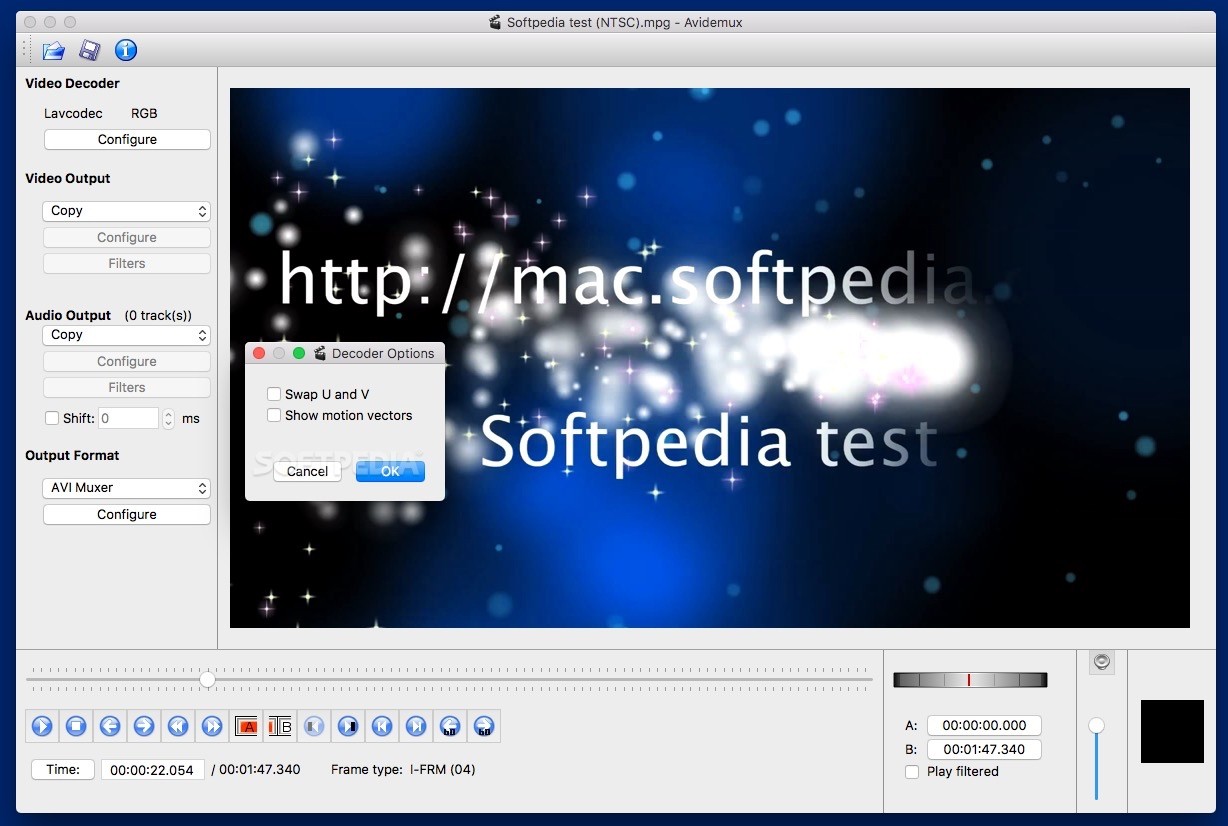MKVToolnix is a freeware utility that allows you to create, alter, inspect, etc., video files with the MKV format. You can use MKVToolNix to create, split, edit, mux, demux, merge, extract, or inspect Matroska files. A way to get MKVToolNix running on the latest Slackware is to download the build script available on Slackbuilds.org and running it. It will do everything for you. This script was provided by Andrew Strong. 20.04 LTS 'Focal Fossa', 20.10 'Groovy Gorilla'.
The original version of MKVtools (MKVtools 2) is being phased out to be replaced by three specialized applications - AVItools, MP4tools and a reworked version of MKVtools. MKVToolnix دانلود رایگان نرم افزار MKVToolnix 56.1.0 نرم افزاری کاربردی برای فرمت MKV که یکی از فرمت های محبوب برای فایل های ویدئویی است میباشد که امکان بهم چسباندن تعداد نامحدودی از ویدیو، صدا و زیرنویس را در قالب یک فایل دارد. Download MKVtools 3.7.2 Beta Software. If MKVtools doesn't quite do what you want it to, you can see if there is a beta version of the software found here. Please help bring the beta software into general release by sending feedback to: emmgunnbeta@gmail.com.
Create, edit, inspect and produce Matroska video files using this advanced app with numerous configuration settings for expert users
Mkvtools Download Latest
What's new in MKVToolnix 56.1.0:
- New features and enhancements:
- mkvmerge: AAC: added support for LOAS/LATM files with channel configuration indexes 9–21 (e.g. channel count 22.2 for index 13) according to Rec. ITU-R BS.1196-7 & ISO/IEC 23008-3:2019. Fixes #3081.
- Bug fixes:
- mkvmerge: HEVC/H.265 parser: fixed invalid memory access that could happen when reading certain types of HEVC data (e.g. with changing parameter sets mid-stream) from certain containers (e.g. Matroska). This bug was introduced in release 56.0.0. Fixes #3083.
MKVToolnix is an advanced application that enables you to open, examine, edit and mux Matroska files (.mkv). It offers support for other popular video file types too, along with audio tracks and subtitles.
The full package includes separate command-line utilities for merging and extracting streams, viewing information, as well as for editing headers and chapters They are all wrapped up in a graphical interface in the Windows edition. Linux users can resort to MKVToolnix for Linux.

Inspect and manipulate Matroska files
The tool enables you to view, append and take apart tracks, chapters and tags, as well as to edit a wide range of data. For example, when it comes to general track options, you can set the track name, language, default and forced track flags, tags, and timecodes.
What's more, you can set the aspect ratio, FPS, delay, stereoscopy mode, cropping, cues, compression mode, and custom command-line parameters for enhanced functionality. External files can be embedded in the movie as attachments.
Create and edit movie chapters
It's also possible to create chapters and define properties, such as start and end time, flags, segment and segment edition UID, together with chapter name, language and country. Configurable global settings focus on the tag file, whether to create a WebM compliant file or not, split mode, file linking, and so on.
An important aspect worth taking into account is that MKVToolnix offers support for batch jobs, which means that you can leave the workstation unattended while the tool executes time-consuming tasks.
You can examine the current command line and copy it to the Clipboard or save it to file to use in future projects, manage the queue jobs, add command-line options, load chapters from external files, edit the header, as well as save the project as an .mka, .mkv or .mk3d-formatted file.
Evaluation and conclusion
The tool didn't put a strain on computer performance in our tests, using low CPU and RAM. It carried out tasks in a decent amount of time and didn't trigger the operating system to hang, crash or prompt error messages.
Taking into account its wide range of configuration parameters, MKVToolnix should meet the requirements of most expert users looking to study, create, edit and generate MKV files.
Filed under
Download Hubs
Mkvtoolnix 64 Bit
MKVToolnix is part of these download collections: Convert MKV, Make MKV, Edit MKV, MKV Creators
MKVToolnix was reviewed by Elena Opris- Memory (RAM): 512 MB of RAM is required
- Hard Disk Space: 50 MB of free space required
- Processor: Intel Dual Core or later processor
MKVToolnix 56.1.0
add to watchlistsend us an update
- portable version
- A portable version of this application is available: Portable MKVToolnix
- runs on:
- Windows 10 32/64 bit
- file size:
- 19.9 MB
- filename:
- mkvtoolnix-32-bit-56.1.0-setup.exe
- main category:
- Multimedia
- developer:
- visit homepage
top alternatives FREE
top alternatives PAID
RVTools
RVTools is a Windows .NET 4.6.1 application which uses VMware vSphere Management SDK 7.0 and CIS REST API to display information about your virtual environments.
Interacting with VirtualCenter 4.x, ESX Server 4.x, VirtualCenter 5.x, ESX Server 5.x, VirtualCenter 6.x, ESX Server 6.x, VirtualCenter 7.0 and ESX server 7.0 RVTools is able to list information about VMs, CPU, Memory, Disks, Partitions, Network, CD drives, USB devices. Snapshots, VMware tools, Resource pools, Clusters, ESX hosts, HBAs, Nics, Switches, Ports, Distributed Switches, Distributed Ports, Service consoles, VM Kernels, Datastores, multipath info, license info and health checks.
The information can be exported to csv and xlsx file(s). With a xlsx merge utility it’s possible to merge muliple vCenter xlsx reports to a single xlsx report.
More than 1,4 million copies downloaded!
RVTools supports VirtualCenter 4.x, ESX 4.x, VirtualCenter 5.x, ESX 5.x, VirtualCenter 6.x, ESX 6.x, VirtualCenter 7.0 and ESX Server 7.0.
Latest Version: 4.1.3 | April 11, 2021
Read more about the information which is gathered by RVTools
vSpeaking Podcast Episode 108: Top 10 VMware Tools
